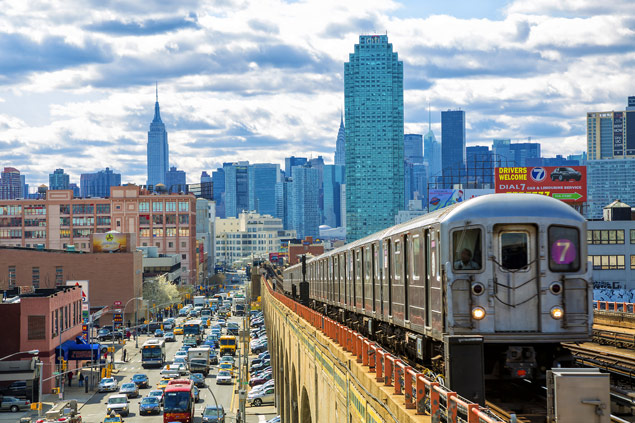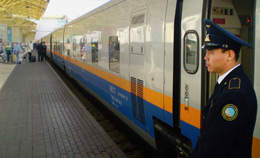 |
Sebastian Anapolsky (MPP/MUP ’04), Urban Planning and Transport Consultant
Regularly advises Argentinian and Latin American municipalities on urban development and transportation projects, and develops strategies for creating more sustainable cities. As an independent consultant, Anapolsky has worked on several projects for the World Bank and various national governments that have focused on improving public transit and non-motorized modes of transportation and reducing sprawl.
Valerie Sathe Brugeman (MPP ’07), Senior Project Manager, Center for Automotive Research
Examining emerging industry trends and potential paths to commercialization of bio-based manufacturing materials like soy, corn, and natural fibers. Also looking at how connected vehicle technology may impact mobility, the economy, and the environment.
Kristin Dziczek (MPP/ME ’96), Director of Labor and Industry Group, Center for Automotive Research
Advises federal, state, and local policymakers in the U.S. and Canada on automotive workforce issues, as well as technology developments in the auto industry and their potential labor implications. She is currently exploring how new fuel economy and carbon emissions standards will impact the production and talent needs of the Big Three.
Eric Hesse (MPP/MS ’06), Strategic Planning Coordinator, Tri-County Metropolitan Transportation District of Oregon (TriMet)
Developing and implementing sustainability policies to meet the state of Oregon’s greenhouse gas reduction goals. The state is targeting a 20 percent reduction in emissions per capita from 2005 levels by 2035. Eric Hesse also leads the American Public Transportation Association’s (APTA) climate change efforts, and has helped establish new methodologies for measuring mass transit’s carbon footprint. In 2010, he was named to Mass Transit Magazine’s “Top 40 Under 40” list.
Sarah Jepson (MPP ’04), Manager of Active Transportation and Special Programs, Southern California Association of Governments
Working to change the auto-centric mindset of Southern Californians by developing strategies to reduce vehicle miles traveled and crafting policies to fund infrastructure improvements conducive to increased walking and biking. Sarah Jepson also engages in coalition-building to ensure current transportation and transit efforts undertaken in Southern California are effectively coordinated with land-use decisions and serve the needs of the region’s cities. For her efforts in developing a strategic plan to encourage walking and biking to transit stations, Jepson received a National American Planning Association Award this year.
 |
Megan Levanduski (MPP ’14), Fulbright-Clinton Fellow, Green Academy Scientific Research and Education Center (Kazakhstan)
Identifying barriers to reducing Kazakhstan’s greenhouse gas emissions and energy consumption for the United Nations Development Programme.
Michael Snavely (MPP ’08), Senior Associate, Cambridge Systematics
Uses complex systems methodologies and mathematical modeling to help cities and states solve their transportation problems — with much of this work centered on improving environmental outcomes. Currently working on strategies for developing a zero-emission freight corridor for port regions in Southern California, as well as examining concepts for implementing connected vehicle technologies in the Bay area.
Email [email protected] to share energy and environmental policy stories for our expanded online roundup.
Below is a formatted version of this article from State & Hill, the magazine of the Ford School. View the entire Spring 2015 State & Hill here.